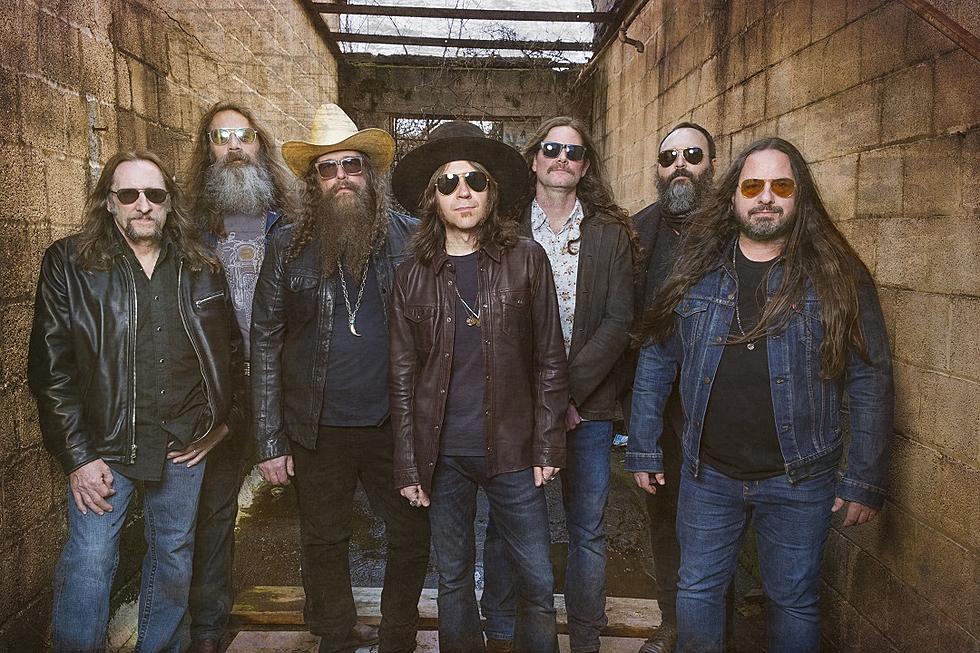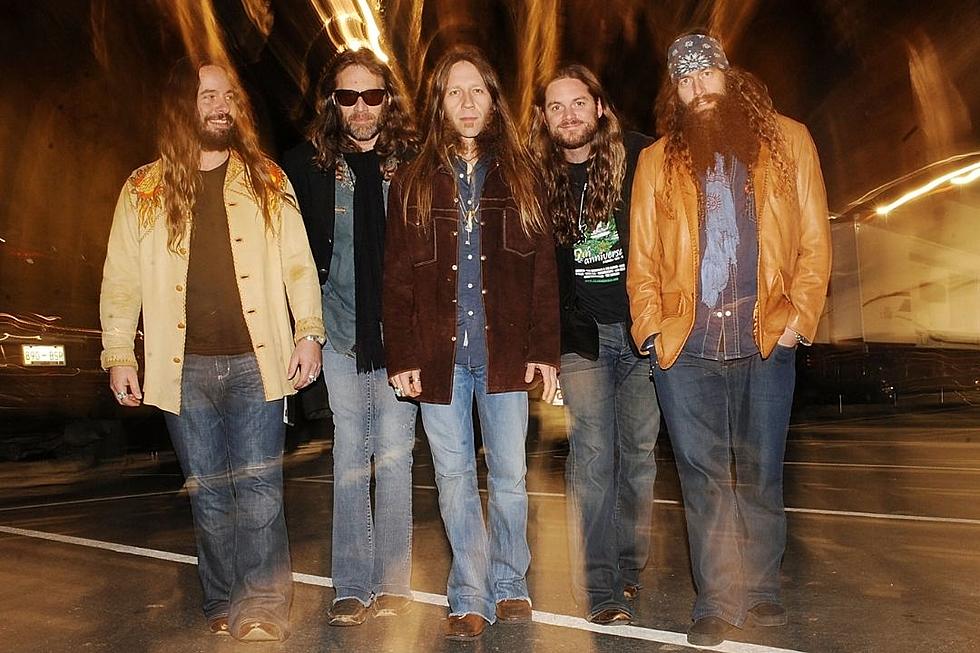
Interview: Blackberry Smoke Mark 20 Years Together With New Album, ‘You Hear Georgia’
Charlie Starr can't quite believe it, but he and his Blackberry Smoke bandmates have been making music together for 20 years now.
"Every time I try to wrap my brain around that, it's tough," Starr tells The Boot. "And it doesn't feel like it's been 20 years. I was 26 years old when we started this band, and now I'm 46 -- that's crazy."
If you ask him, the band -- Starr on guitar and vocals, Richard Turner on bass and vocals, Brit Turner on drums, Paul Jackson on guitar and vocals and Brandon Still on keys -- hasn't changed much in those two decades. In fact, when he went back and listened to their debut album, 2003's Bad Luck Ain't No Crime, he could see the through line that runs through five additional records and into Blackberry Smoke's newest project, You See Georgia, out Friday (May 28).
"I think the music has grown -- meaning that we've evolved a bit from the scrappy young dudes we were, and we take our time a little more now musically," Starr reflects. But, "you know, we really haven't changed the formula all that much. I hope it's just refined."
Blackberry Smoke may not be selling out stadiums, but they're living comfortably and -- just as importantly -- making their own decisions. Their last four albums reached the Top 10 of the Billboard country albums chart -- two went to No. 1, in fact -- and they keep a busy touring schedule.
"We've always enjoyed a ton of freedom, in that we answer really only to ourselves, and I know a lot of my friends can't say that. I've just always really appreciated that, for better or worse. That's not a luxury that a lot of musicians probably have," Starr says. "I get to ride in a fancy tour bus and play and sing songs for people who want to pay money to hear them. And that pays my light bill and feeds my family. I can't think of a better job."
In recent years, Blackberry Smoke have made their own decisions in the studio, too: The band self-produced their two most recent albums, 2016's Like an Arrow and 2018's Find a Light, giving themselves full control over the process. This time, though, they enlisted a fellow Georgian, Grammy winner Dave Cobb, to take the reins as producer.
"He brought his magic. I know that sounds corny, but it's true. He's great. He makes magical records. I love them," Starr says of Cobb. "He's right there with you, and he's excited about the songs and about the recording."
If not for Cobb, Starr may never have finished You Hear Georgia's title track. Cobb happened to pass by while Starr was noodling on bones of the idea in a corner of the studio, on their penultimate day of tracking. It was "nothing yet," Starr remembers, but Cobb told him to go finish it -- and, then, after the band laid the song down the next day, suggested it as an album title.
"You Hear Georgia" addresses those who lean on stereotypes to form their opinions of people from the South. Starr was inspired while watching TV during the COVID-19 pandemic and hearing someone with a thick southern accent being interviewed: "It made me smile. And I thought, 'I wonder if everybody else around the world is hearing what he's saying, or how he's saying it,'" he explains.
Starr kept thinking: about "the way Hollywood portrays southern people and the South as these poor, barefoot, inbred, uneducated people full of hate." About his "archetypical southern" grandmother, whom he remembers as kind and compassionate and never quick to judge someone. About how much fighting and how many heated disagreements seem to happen now.
"I don't know if there's anything I could ever say or do that would change people. I know there are some people who'll say, 'Bulls--t, you can!', but ... the only person that you can actually control is yourself, your own actions ...," Starr muses. He and his bandmates have never made a conscious effort to influence others' opinions of the South and the people who live and come from there, he admits, but in the song, he does offer, "You know you can't believe everything you read ... Maybe you could find a new harmony / If you hear Georgia."
"No matter how much you scream and cuss, you really can't change another person," Starr continues. "They have to do it themselves."
Throughout You Hear Georgia, Atlanta, Ga.-based duo the Black Bettys -- who have worked with everyone from Frankie Ballard to rapper T-Pain -- add background vocals, while Gov't Mule founder Warren Haynes and outlaw-esque country artist Jamey Johnson join Blackberry Smoke on "All Rise Again" and "Lonesome for a Livin'," respectively. Starr and Haynes, who are friends, conceptualized their collaboration during the COVID-19 quarantine, though they opted to be not-so-literal with their lyrics.
Johnson, too, is a familiar collaborator to Blackberry Smoke: He and George Jones recorded a cover of "Yesterday's Wine" with the band for their 2009 album Little Piece of Dixie. Fittingly, Starr had considered pitching Jones -- who died in 2013 -- "Lonesome for a Livin'," which he wrote years ago.
"It wasn't really intended for me to sing," Starr admits of the song. Still, he brought it up to Johnson, suggesting that they change a few lyrics to turn it into a sort-of tribute to Jones.
"I was obviously thinking about George's phrasing on a couple of things ... Of course, I can't sing like George Jones, but he was in my mind the whole time," Starr says. "He was the greatest country singer to ever live, in my opinion. No one ever sang a country song like he did, and never will. He was very, very special."
Blackberry Smoke will celebrate the release of You Hear Georgia with an acoustic, full-band show at the Basement East in Nashville on Friday night. Check their official website for more upcoming tour dates.
More From 102.3 The Bull


![JD Shelburne Puts a Country Spin on Christmas Classic ‘Away in a Manger’ [EXCLUSIVE PREMIERE]](http://townsquare.media/site/623/files/2022/12/attachment-Shelburnetheboot.jpg?w=980&q=75)






